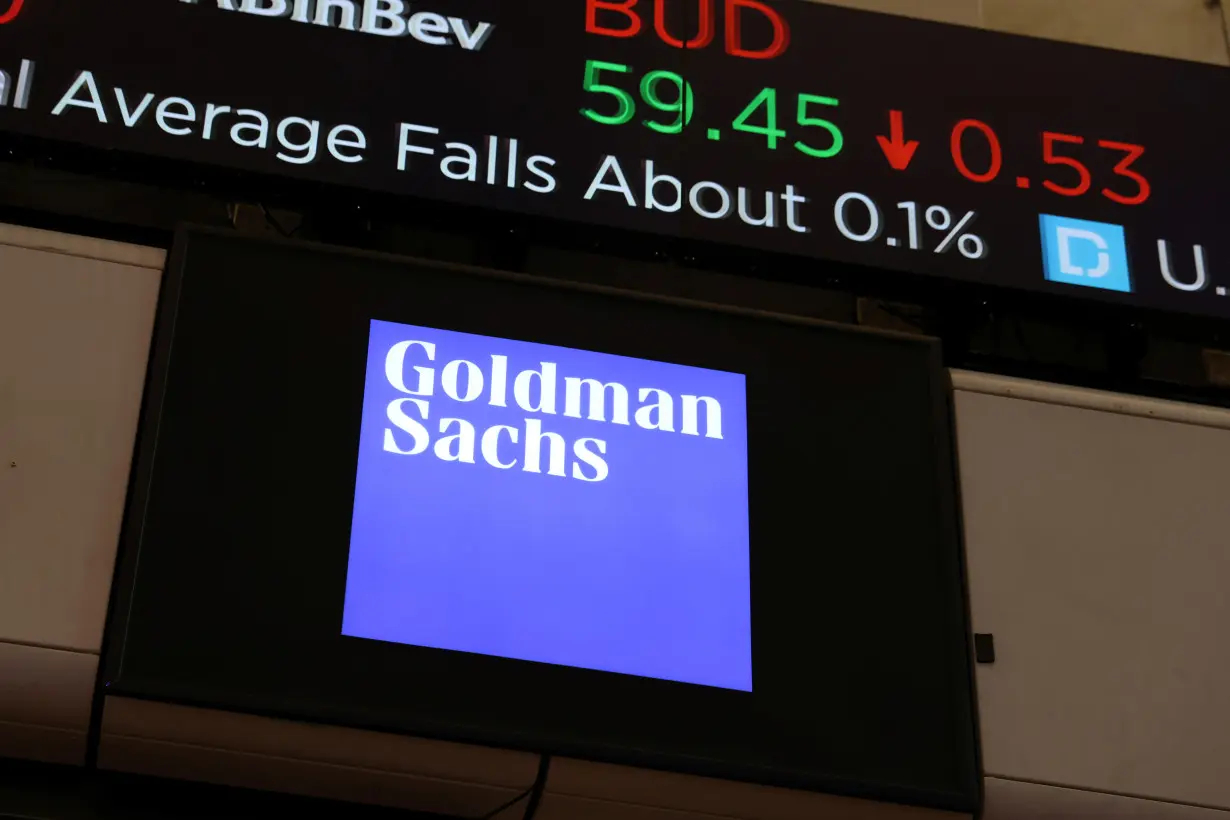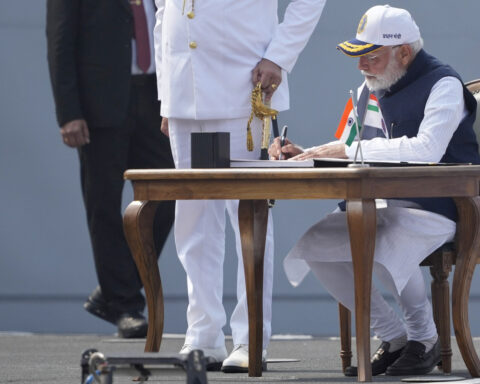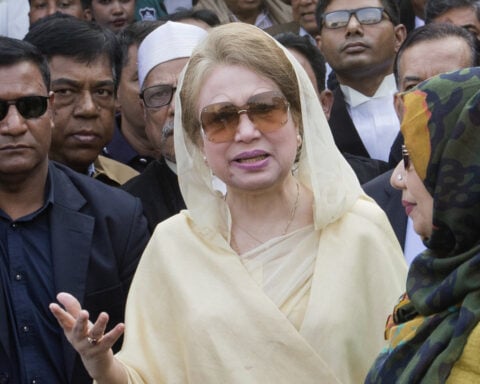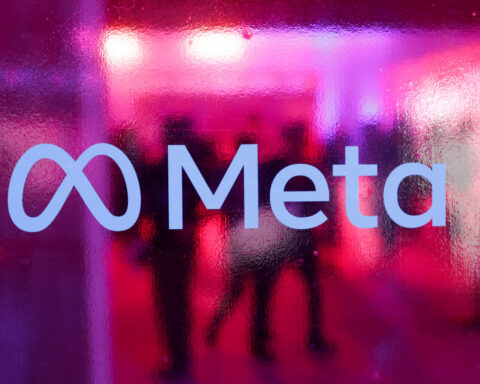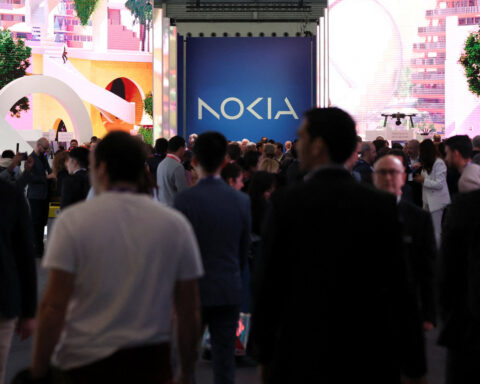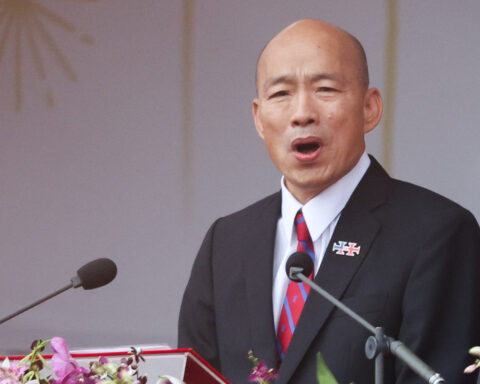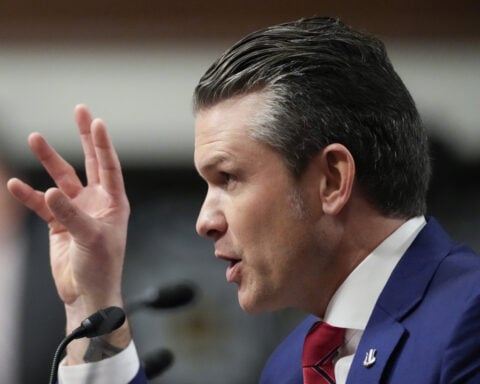KUALA LUMPUR (Reuters) - Goldman Sachs Group has sued Malaysia in a British arbitration court, as tensions escalate over a settlement agreement on the bank's role in the massive 1MDB corruption scandal.
Malaysian and U.S. authorities say $4.5 billion was stolen from the now-defunct Malaysian fund 1Malaysia Development Bhd (1MDB) in an elaborate scheme that spanned the globe and implicated former Malaysian Prime Minister Najib Razak, Goldman staff and high-level officials elsewhere.
WHAT IS 1MDB?
1MDB was a sovereign fund set up in 2009 with the help of Malaysian financier Jho Low to promote economic development.
Najib, who was prime minister from 2009 to 2018, co-founded 1MDB and chaired its advisory board until 2016.
HOW DID BILLIONS GO MISSING?
1MDB raised billions of dollars in bonds apparently for use in investment projects and joint ventures between 2009 and 2013.
But the U.S. Department of Justice (DoJ) said $4.5 billion was diverted to offshore bank accounts and shell companies, many linked to Low. Malaysian authorities say billions more remain unaccounted for.
The United States has said the 1MDB case was its largest ever kleptocracy investigation.
The siphoned funds were used to buy luxury assets and real estate for Low and his associates, including a private jet, a superyacht, hotels, jewelry, and to finance the 2013 Hollywood film "The Wolf of Wall Street", U.S. lawsuits have said.
Low, a fugitive, has been charged in Malaysia and the United States over his central role in the case. He denies wrongdoing.
His whereabouts are unknown. Malaysia has said he is in China, but Beijing denies it.
Najib was not named by the DoJ, but was alluded to in the investigation as "Malaysian Official 1", according to Malaysian and U.S. sources.
Outrage over the scandal, which first erupted in public in 2015, played a part in Najib's defeat in the 2018 election, which resulted in the United Malays National Organisation (UMNO) losing power for the first time since the formation of Malaysia following independence from British colonial rule.
Najib is now in jail serving a 12-year sentence for a case linked to 1MDB. He faces several other 1MDB trials.
HOW WAS GOLDMAN INVOLVED?
Goldman has been investigated by regulators in at least 14 countries for its role in underwriting the 1MDB bond issues.
The 1MDB work earned the bank $600 million in fees and led to large bonuses for some of its executives, officials have said.
Goldman has in the past said that certain members of the former Malaysian government and 1MDB officials lied to it about how proceeds from the bond sales would be used.
Goldman in 2020 agreed to settle with the DoJ for $2.9 billion and its Malaysian unit pleaded guilty to a corruption charge.
Tim Leissner, a former Goldman partner, pleaded guilty in 2018 to conspiring to launder money and violate an anti-bribery law, and agreed to cooperate with prosecutors. He has not been sentenced and, according to media reports, he has been free on $20 million bail since his arrest in 2018.
Roger Ng, Goldman's former top investment banker for Malaysia, pleaded not guilty to similar charges. He was sentenced to 10 years in prison in the United States earlier this year, and brought to Malaysia in October to help with local investigations.
WHY IS GOLDMAN SUING MALAYSIA NOW?
In 2020, Goldman agreed to pay $3.9 billion to the Malaysian government to settle a criminal probe.
Goldman is also required to make a one-time interim payment of $250 million if Malaysia has not received at least $500 million in assets and proceeds by August 2022, according to the agreement.
The two sides are now disputing whether Malaysia recovered at least $500 million as of August 2022 and whether any interim payment was due.
According to Goldman, the dispute would be settled by arbitration if the two are unable to resolve the matter.
Goldman filed for arbitration with the London Court of International Arbitration this week.
Malaysian Prime Minister Anwar Ibrahim, who came to power in November 2022, has said he wants to review the settlement deal with the bank, and in August said he may even sue them.
(Reporting by A. Ananthalakshmi and Rozanna Latiff; Editing by Simon Cameron-Moore)

 Germany sees meat exports to EU continuing after foot-and-mouth case
Germany sees meat exports to EU continuing after foot-and-mouth case
 Parliament speaker to lead Taiwan delegation to Trump's inauguration
Parliament speaker to lead Taiwan delegation to Trump's inauguration
 German economy contracted 0.2% in 2024
German economy contracted 0.2% in 2024
 Middle East latest: Palestinian prime minister says Palestinian Authority should run Gaza in future
Middle East latest: Palestinian prime minister says Palestinian Authority should run Gaza in future
 Nokia signs multi-year patent license agreement with Samsung
Nokia signs multi-year patent license agreement with Samsung
 Irish parties secure 'comfortable majority' for new government
Irish parties secure 'comfortable majority' for new government
 Bayern Munich signs US youngster Bajung Darboe from LAFC
Bayern Munich signs US youngster Bajung Darboe from LAFC
 Novak Djokovic breaks a tie with Roger Federer for the most Grand Slam matches in tennis history
Novak Djokovic breaks a tie with Roger Federer for the most Grand Slam matches in tennis history
 China's RedNote: what you need to know about the app TikTok users are flocking to
China's RedNote: what you need to know about the app TikTok users are flocking to
